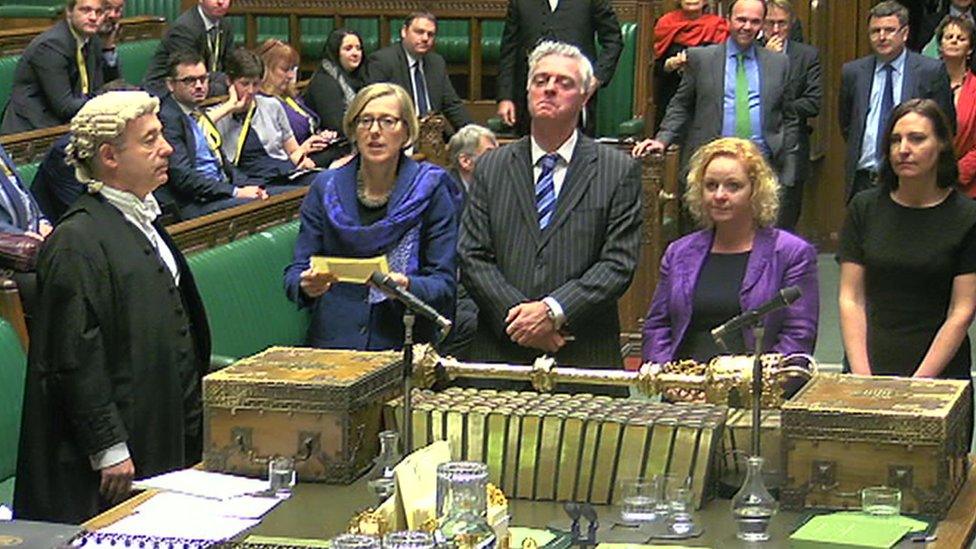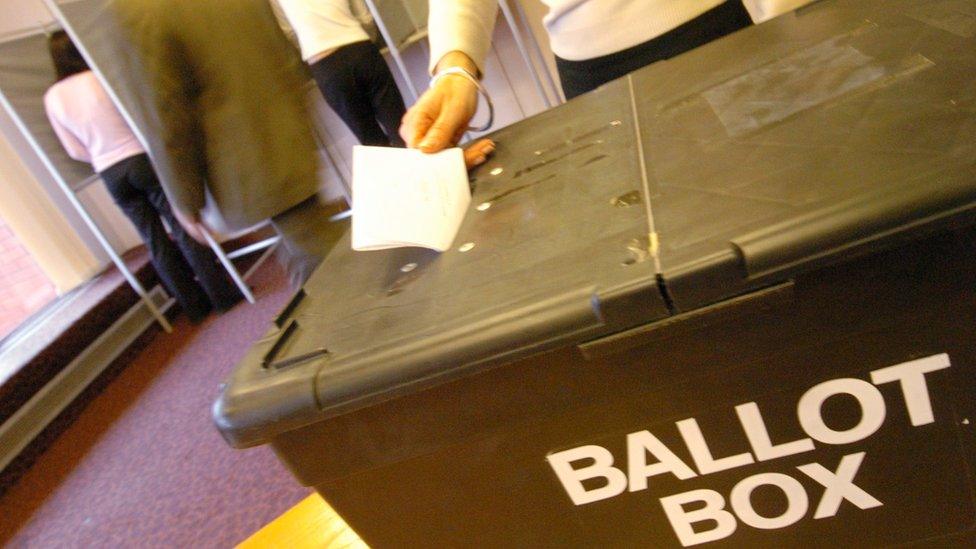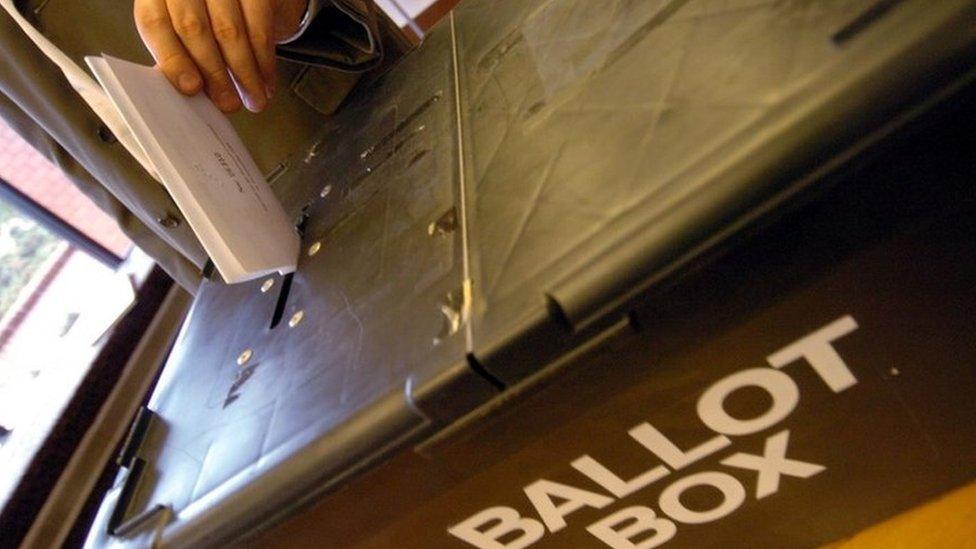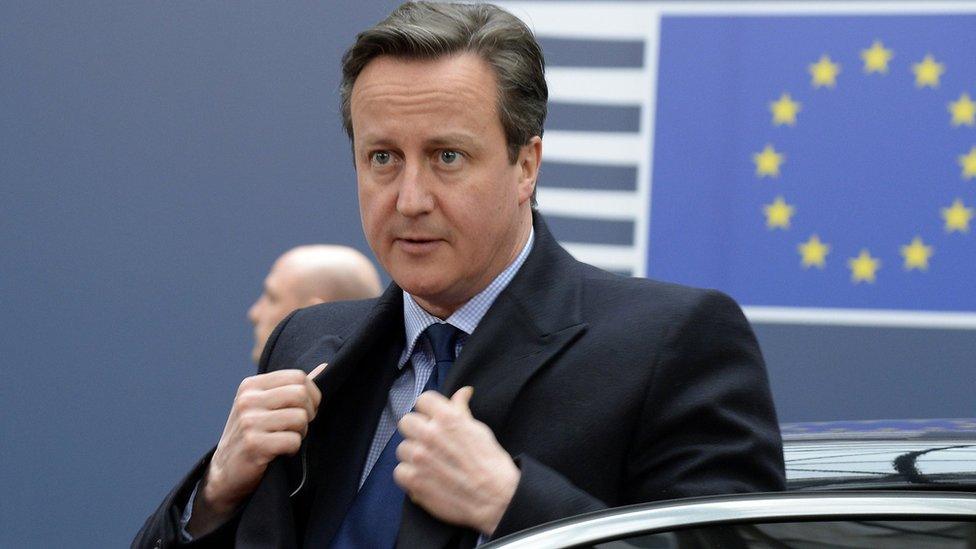EU referendum: MPs reject Lords' plan for votes at 16
- Published

MPs have rejected an attempt by the House of Lords to give 16 and 17-year-olds a vote in the planned referendum on Britain's EU membership.
Peers amended the legislation paving the way for the in-out poll, due before 2018, to lower the voting age.
But the move was overturned in a Commons vote, by 303 votes to 253 - a government majority of 50.
The government said it would be wrong to alter the "tried and tested" general election franchise for a single poll.
But Labour, the SNP and Lib Dems all favour allowing 16 and 17-year-olds - who were allowed to take part in last year's referendum on Scottish independence - to vote on whether to remain in the EU.
Labour's shadow foreign secretary, Hilary Benn, said the government's decision to block the move was "wrong-headed and unfair".
Speaker John Bercow certified that the changes proposed by the House of Lords were covered by "financial privilege" rules, because the government had estimated that it would cost about £6m to implement.
These rules can be used by the House of Commons "as grounds for overruling any House of Lords proposal that has cost implications".
But BBC assistant political editor Norman Smith said Labour peers still hoped to force the government to lower the voting age, and would table a fresh motion that did not fall foul of the rules, on Monday.
No date has been set for the referendum, but David Cameron has promised to hold it by the end of 2017.
- Published7 December 2015

- Published18 November 2015

- Published3 November 2015
